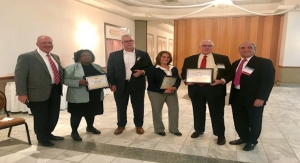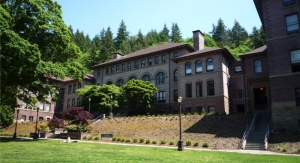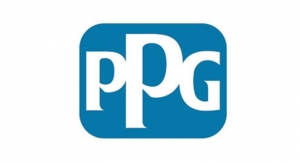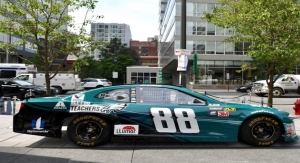“We’d like to see young people come in,” said Frank Magdits, Pan Technology’s VP of sales and marketing. “We’re not talking about just technical jobs.”
Representatives from NJIT (Newark), the Stevens Institute of Technology (Hoboken) and William Paterson University (Wayne) spoke at MNYCA’s Fall Forum, which took place Nov. 13 at the Hilton Meadowlands in East Rutherford, NJ – right near MetLife Stadium.
According to Siamack Shojai, Ph.D., the dean of WPU’s Cotsakos College of Business, a connection is needed to build a bridge between industry and academia.
There are three programs for the 1,800 undergrad students and 325 grad students that are part of the College of Business, Shojai said, adding that the university offers a bachelor’s degree in professional sales.
“Our students mature very quickly,” the dean said. “They need to know how to communicate, interview and present themselves.”
By the time they graduate, “they’re ready to go and hit the road,” he added. “[Employers] don’t have to invest much in training.”
The school established at four-day summer boot camp called Crux of Industry Niche – or COIN, for short.
The Crux of Industry Niche is an initiative that provides industry-focused and scalable boot camps to supplement the existing programs at the Cotsakos College of Business, per William Paterson’s website.
Shojai said that the many of the College of Business’s programs lead to networking and internship opportunities – and eventually, a full-time job.
This fall, NJIT’s School of Engineering – also known as the Newark College of Engineering – will offer a co-op program for sophomores and juniors – or second- and third-year students as John P. McCarthy, director of Research Development, NJIT, said the school refers to them.
The students declare and each department has an academic advisor who vets the candidates, McCarthy said.There are two cycles – “A” and “B” – as part of the five-year program.
The “A” cycle begins in the student’s second year, with “B” following in the third. There is an eight-month co-op period for each cycle.
“Ninety-five percent of students return for the second cycle,” McCarthy said. “They will have spent 16 months with you [employers]. That really reduces your recruiting costs.
“With internships, by the time they get up to speed, they’re going back to school,” he added.
Students must have a minimum 2.5 GPA and take a professionalism and ethics course as a pre-requisite, according to McCarthy.
As part of the co-op, students are introduced to a platform called “Handshake” – a virtual job posting site.
Stevens also has a five-year program with a co-op, which has been in existence for three-plus decades, according to Lynn Insley, executive director, the Stevens Career Center, Stevens Institute of Technology.
“This is our signature work-based program,” said Insley, adding that 600+ co-op assignments are completed annually – mostly in the Tri-State area. “We are developing the next generation of the workforce.”
Between their sophomore and junior years, students rotate a semester of work with a semester of study – gaining up to 22 months of work experience, according to Insley.
The school offers summer internships for undergrads, programs for master’s and doctorate students, four career fairs per year, an internship fair, as well as on-campus recruiting.
A recruiter or hiring manager can “spend the day in the Career Center” and arrange interviews with students “without obligation,” Insley said.
Many MNYCA members voiced the concern of not having the time to meet with college representatives or visit campuses.
Bruce Schimmel, director of sales at Superior Materials Inc., suggested a student presence at Eastern Coatings Show 2019 in Atlantic City, mentioning the Intro to Paints & Coatings course, which is free for students.
McCarthy also said that schools could host future events.
Attracting new talent is something the MNYCA has been discussing.




























